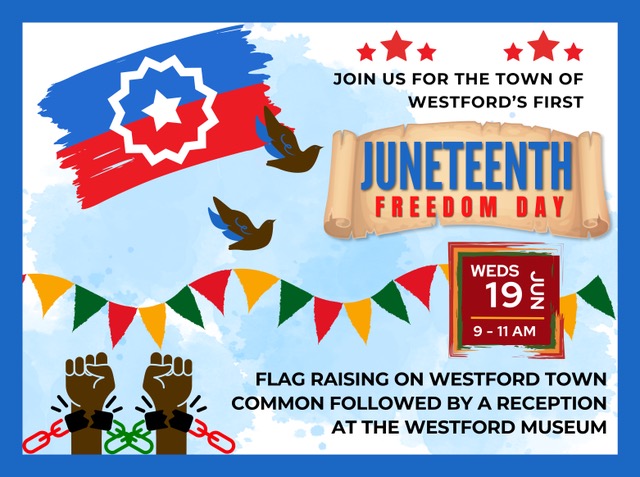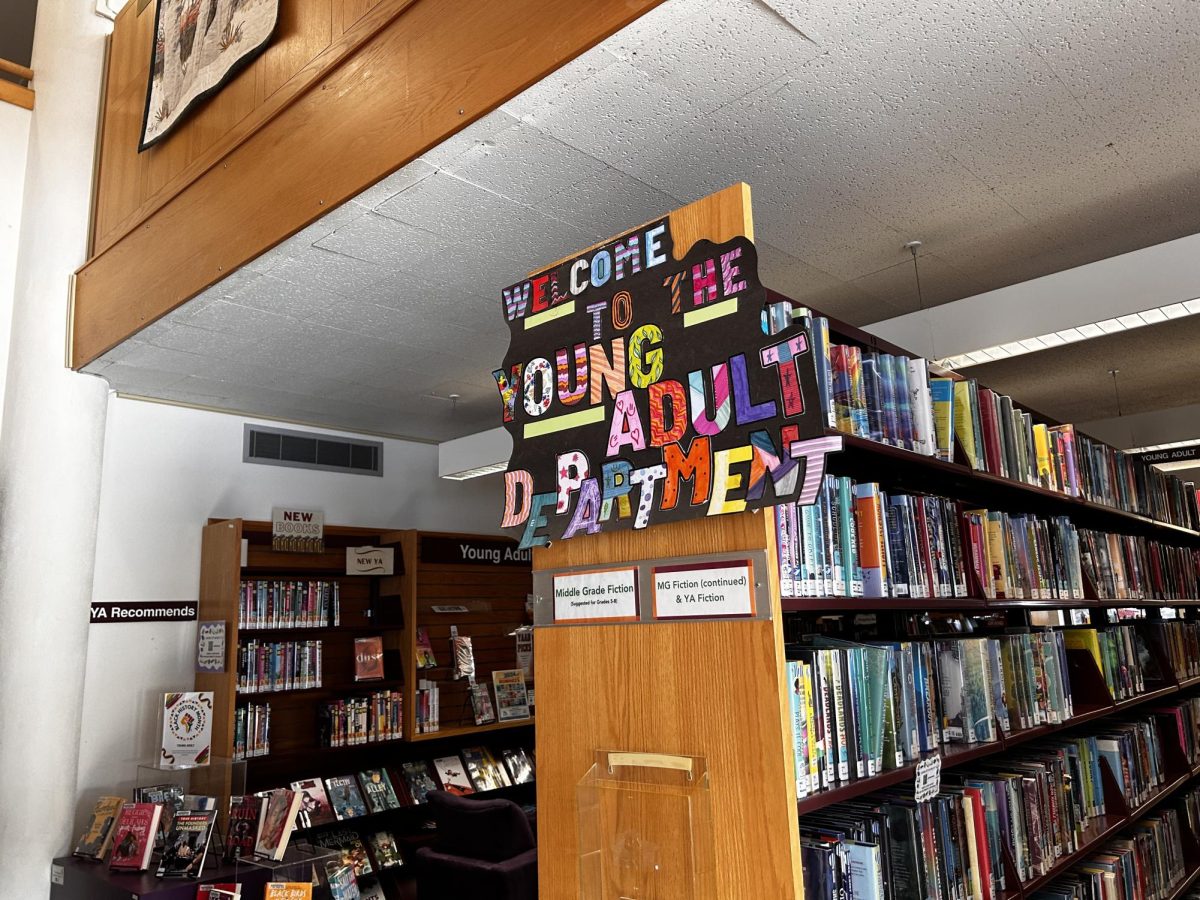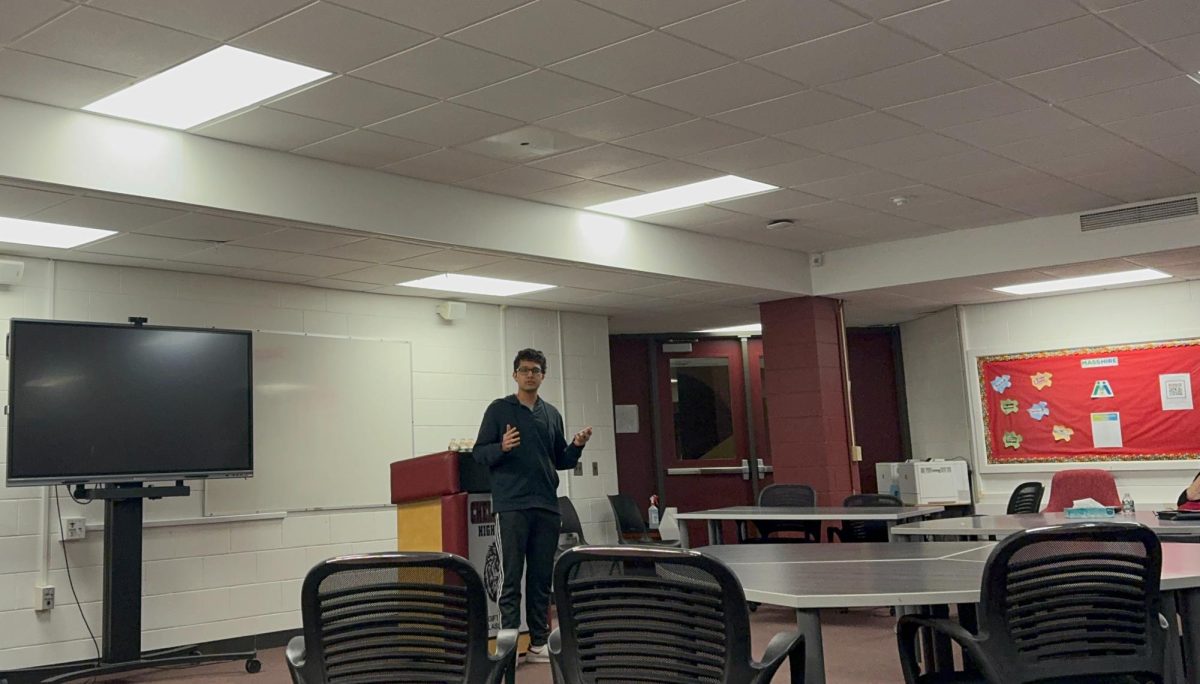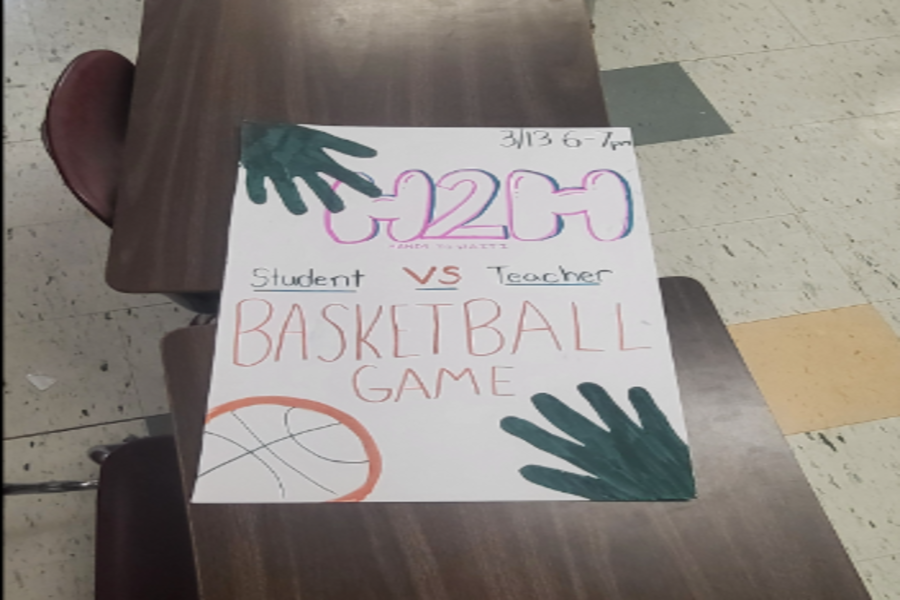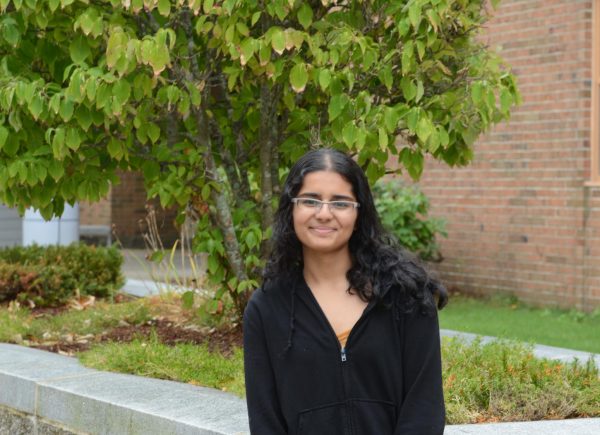Westford’s first-ever Juneteenth flag raising event and celebration will be held on Wednesday, June 19 at the Town Common from 9-11 a.m, hosted by the town’s Diversity, Equity, and Inclusion (DEI) committee. Following the flag raising, the ceremony will move to the Westford Museum for a reception and chance to hear guest speakers.
Juneteenth, which has gained spotlight after being made a federal holiday in 2021, commemorates the end of slavery along with African American culture as a whole. Although President Lincoln had issued the Emancipation Proclamation on January 1, 1863 during the Civil War, it wasn’t until June 19, 1865 that the last slaves were “freed” in Galveston, Texas, hence the holiday’s combining of “June” and “19th”.
With it being a relatively recent addition to the calendar, the true historical context and significance of the holiday is not well-known by many. Having noticed this, the committee wanted to recognize the date’s importance beyond a simple day-off, and in doing so, continue the town’s commitment to racial equity.
“For me, it was last year when folks had the day off and were trying to go to Town Hall or the library and were like ‘It’s closed. Why is it closed? What even is Juneteenth?'” DEI committee member Wendy Gloyd said. “We’ve been thinking about this, knowing that [events] like this make a difference. As a DEI committee, [it was also through] seeing what other towns are doing, and really being mindful of what the lesson is that is learned.”
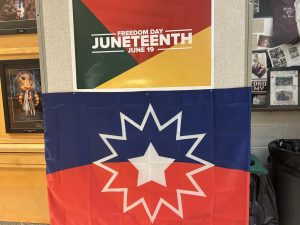
While learning the history of slavery in the U.S. is a common part of school curriculums, the specific details of Juneteenth are often overlooked, though efforts to recognize it have increased over the years.
“I probably heard briefly about it in history class sophomore or freshman year and on the internet because at the time it became a federal holiday, it was a big thing on social media,” junior Natalia Alvarado said. “Before that, I didn’t really know much and [still] can probably learn more.”
For Gloyd, one of the challenges that came across in the planning of the event was making sure that the celebration was as authentic and genuine as intentioned, especially as only 0.8% of the population in Westford is Black.
“I was kind of wrestling with this [discrepancy] for a little while. Does that mean we shouldn’t do [the event] because we would almost be representing other people? But, the more I read about it, I think we are looking at it from a perspective of educating, being mindful and respectful and we want to do it thoughtfully,” Gloyd said. “[…] Our committee did spend the time to try and figure out how to craft an event that teaches people, so that’s why part of it will be a flag raising and also people speaking about the depth of the meaning.”
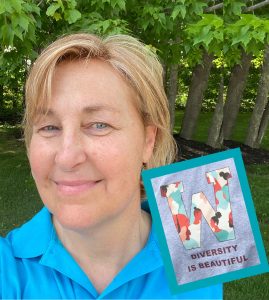
Among the speakers for the day is Leslie Howard, president of the Westford Historical Society. According to Gloyd, Howard will be presenting her research on the history of slavery in Westford, including a record of at least 24 confirmed enslaved individuals in the town from 1730 to 1780 and what their lives may have looked like.
“It’s looking at the history of our town fresh again and people like [Howard], who was able to spend almost 450 hours to do all this work,” Gloyd said. “That shouldn’t go unnoticed because […] that really makes [history] come to life, showing the roots of Juneteenth in Westford and slavery [here]. It wasn’t something I realized as a kid, or even five years ago.”
In addition to this account, the event will also recognize Caesar Bason, a black man from Westford who served in the Revolutionary War and “Peggy”, a doll from the Westford Museum that represents an African American servant to Westford resident Joseph Hildreth Jr in the 1700s, to continue the showcase of Westford’s history of slavery.
With this, Gloyd hopes to foster a sense of meaning and awareness within the community, especially as current instances of systemic racism and prejudices have been seen throughout the nation, and even insensitivity within Westford itself have come to light over the past few years.
“This is actually something that is going to be a working group for us, as we think about ‘how can we be more diverse?’ and […] maybe that we’re not welcoming enough as a town, so we’ve been looking into that,” Gloyd said. “And, just starting to offer things like Juneteenth or the screening of Who We Are: A Chronicle of Racism that we did earlier this year is working towards that.”
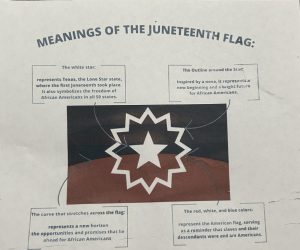
The committee ultimately hopes for this event to be both educational and impactful, as well as a tradition that can continue through the years.
“We’re all really going to learn some history, and that there were slaves on [the] land we are walking on and really feeling the ownership of that [fact],” Gloyd said. “It’s not going to change the world, but it starts a conversation. […] And [we] want to be a part of helping Juneteenth become a thing that we do every year because it means something. It reminds us that we have a responsibility to our community as well and to show that we are listening, that we care, and that we want to learn more.”

